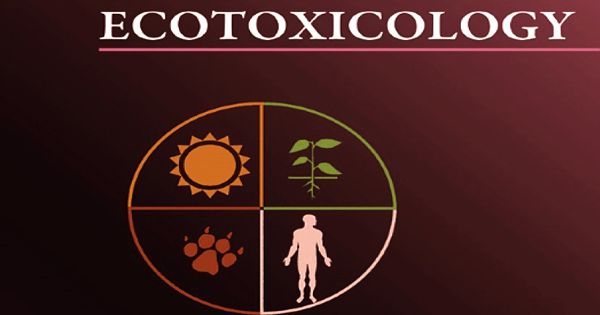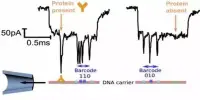Probiotics with a novel edible coating have been developed by scientists at Nanyang Technological University in Singapore (NTU Singapore), ensuring that the helpful bacteria reach the colon once consumed.
The World Health Organization (WHO) defines probiotics as live bacteria that provide a health benefit to the host when given in sufficient concentrations. They’ve been found to help prevent urinary and digestive tract infections, as well as maintain a healthy gut flora, which has been connected to lowering the risk of obesity and increasing general well-being.
However, numerous methods of providing probiotics, such as supplements and dairy products, have failed to ensure that they survive the conditions in the human stomach in sufficient amounts to enhance one’s health.
Many studies reveal that the majority of probiotics in commercial supplements and yogurts die within the first 30 minutes of being exposed to the stomach’s acidic environment.
The probiotics, gut-friendly Lacticaseibacillus bacteria, are spray-coated with alginate, a carbohydrate derived from brown algae, in the NTU-study to shield them from the stomach’s harsh acidic conditions.
Only the probiotics with the NTU-developed coating survived tests replicating a passage through the human digestive tract. Because the coating breaks down when it comes into contact with phosphate ions, which are present in higher proportions in the small intestine, the bacteria are only released when they reach the small intestine.
NTU’s commitment to the requirements and challenges of healthy living and ageing, which is one of four humanity’s big concerns that the University aspires to address through its NTU 2025 strategic plan, is reflected in the development of the alginate coating technology.
Associate Professor Joachim Loo of NTU’s School of Materials Science & Engineering, who led the study, said: “In recent years, scientific studies have shown that the health of an individual is much more dependent on the help of ‘good bugs’ in our gut than we previously thought.”
“However, probiotics are delicate microorganisms and cannot survive the harsh environment of our stomach. To increase the efficacy of probiotics as a dietary supplement, we sought to “parcel-wrap” and deliver them to specific sites of the intestine where they function best. This moisture-stable packaging, through materials engineering, makes for a more effective probiotic delivery and extends the shelf-life of the supplements.”
With a paradigm shift towards disease prevention rather than treatment, probiotics may therefore hold the key in shaping one’s health, keeping one in the pink of health. By further adapting the coating technology, it will be possible to apply it to a range of other probiotics, and for other purposes too, including commercial applications in the agri-food and medical industries.
Professor Joachim Loo
Ms Tan Li Ling, a PhD student at NTU’s School of Materials Science & Engineering, who was first author of the study, said: “We selected alginate as the coating material as it is safe for human consumption, of natural origin, and relatively low-cost. Alginate also exhibits acid-buffering properties, which can protect the probiotics against the harsh conditions caused by gastric acid.”
In February, the study’s findings were published in the peer-reviewed academic journal Carbohydrate Polymers. NTUitive, NTU’s enterprise and innovation organization, has also filed a patent application for the probiotics coating technique.
Expanding the use case of probiotics
The NTU probiotics coating method can be customized to make powder-like coated probiotics with a diameter of around 10μm (0.0004 inch).
Protective sugars are used alongside alginate in this procedure to ensure that bacteria are not killed during the manufacturing process. Furthermore, the usage of calcium ions prevents the coating from deteriorating in liquids or a wet environment, extending its shelf life.
To make the coated probiotics, the approach also employs the spray-drying technique. Spray-drying is a low-cost, high-throughput manufacturing process that is already widely employed in the food and pharmaceutical industries.
It would enable the NTU-developed coated probiotics to be mass-produced at a reasonable cost. The scientist’s cultured Lacticaseibacillus bacteria before washing them in a salt solution to generate the coated probiotics. The bacteria were then packaged together in a concentration that matched the United Nations’ recommended probiotic dosage.
The probiotics were then spray-dried and alginate-coated. It takes around an hour to complete the operation. The coated probiotic bacteria could last up to eight weeks if kept refrigerated.
During an eight-week testing period, the NTU-developed did not degrade at all and was able to shield probiotics from gastric acid.
Probiotic drinks, on the other hand, have a shelf life of up to seven weeks when refrigerated, but the probiotics in them begin to die after a few hours at ambient temperature, according to the researchers.
In addition to potentially being a more effective way to distribute probiotics, the NTU scientists say they are looking into using their discovery to add probiotics to food and beverages such as beer and other canned beverages.
Assoc Prof Loo added: “With a paradigm shift towards disease prevention rather than treatment, probiotics may therefore hold the key in shaping one’s health, keeping one in the pink of health. By further adapting the coating technology, it will be possible to apply it to a range of other probiotics, and for other purposes too, including commercial applications in the agri-food and medical industries.”
Ms Tan added: “This technology is highly versatile as the coated probiotics can be incorporated into many different product types, including dietary supplements and pills, food and beverages, and even animal feeds.”
Companies in the food and beverage industry have expressed interest in adopting and developing the NTU-developed technology.
The researchers will test their breakthrough on different types of probiotics, allowing it to be used to the agrifoodtech business, where it may be used to supplement the diets of reared animals, such as fish and poultry, with probiotics to identify antibiotic alternatives in agri-farming.
















